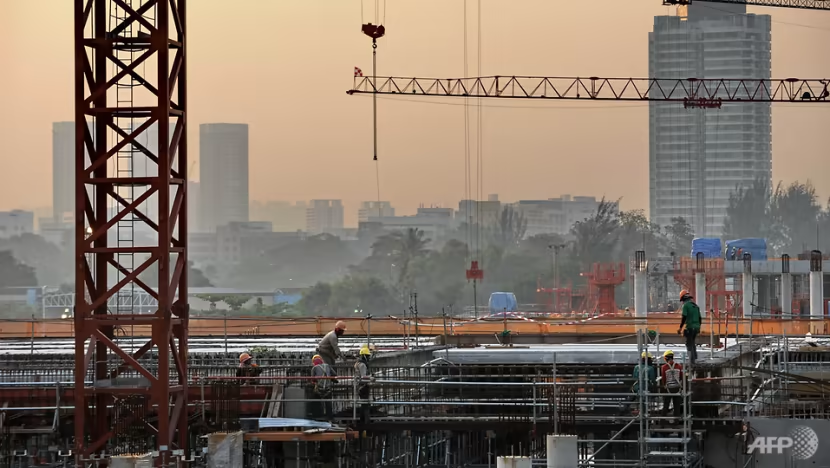
Why Family Offices Are Winning the Property Development Game
Why Family Offices Are Winning the Property Development Game
Whilst institutional investors chase quarterly returns, family offices are quietly reshaping commercial property across Australia and Southeast Asia with unprecedented patient capital deployment. Their influence is profound yet deliberately understated—precisely how these ultra-high-net-worth families prefer to operate.
The Numbers Behind the Discretion
Family offices control an estimated AUD $4.5 trillion globally, with Asia-Pacific representing the fastest-growing segment. UBS Global Family Office Report 2025 reveals Asian family offices allocate 28% of portfolios to property—substantially higher than global counterparts at 23%.
In Australia, family office assets under management have grown 15% annually, reaching AUD $180 billion by 2024.
Singapore anchors regional activity with over 700 single family offices established by 2024—a 30% increase from 2022. The Monetary Authority of Singapore notes these entities collectively manage over SGD $200 billion.
Australia: The Defensive Allocation
Australian commercial property has become cornerstone allocation for family offices seeking stability. Knight Frank's 2024 Wealth Report identifies Sydney and Melbourne among the top 10 cities globally for family office property investment.
Industrial and logistics assets particularly attract attention. Colliers' Australian Investment Review 2025 shows family office investment in Australian industrial properties increased 45% year-on-year, driven by demographic and e-commerce trends.
"The Australian market offers something rare—predictability," notes a property consultant facilitating family office transactions. "These families prioritise capital preservation with steady appreciation over decades."

Southeast Asia: The Growth Engine
Whilst Australia provides stability, Southeast Asia offers growth trajectories aligned with generational investment horizons. Singapore remains primary focus, with family offices participating in major Marina Bay and Orchard Road developments through carefully structured entities maintaining privacy.
Vietnam presents the most compelling growth story. JLL's Vietnam Real Estate Market Outlook 2024 highlights foreign direct investment reaching USD $2.8 billion in 2023, with family offices increasingly active in Ho Chi Minh City and Hanoi mixed-use developments.
The Generational Advantage
What distinguishes family office investment is time horizon. Whilst private equity targets 5-7 year holds and REITs face quarterly pressure, family offices hold assets for decades. This patience transforms economics—projects develop at optimal pace, market cycles are weathered, and value-add strategies fully implement without artificial deadlines.
The Kwok family's Sun Hung Kai Properties exemplifies this approach, building a regional empire through patient capital deployment. Similarly, the Riady family's Lippo Group prioritises long-term value creation across Indonesia, Singapore, and China.
Regulatory Navigation
Sophisticated structuring remains essential across jurisdictions. Australia's FIRB approval process has intensified, with commercial transactions above AUD $1.192 billion requiring approval regardless of nationality. The FIRB Commercial Land Acquisitions Guidance Note details requirements for significant investments.
Singapore's Additional Buyer's Stamp Duty (ABSD) impacts strategies, though the Urban Redevelopment Authority's guidelines offer preferential rates for qualifying family offices, making local establishment attractive.
"Regulatory complexity isn't a barrier—it's a moat," observes a legal adviser specialising in family office structures. "Families investing in proper structuring gain competitive advantages."
Technology and Relationships
Digital platforms supplement traditional relationship-based deal flow, though adoption remains cautious. Family offices value technology that enhances rather than replaces relationship-building processes.
Lendhaus's digital marketplace recognises this balance, providing efficient screening whilst preserving relationship development. The platform connects verified borrowers with global financiers, including family offices, maintaining required discretion.
Forward Outlook
Several trends will shape the next decade:
Wealth Transfer: McKinsey's Great Wealth Transfer report estimates USD $30 trillion transferring to younger generations by 2030, with Asia representing substantial portion. Next-generation inheritors often favour direct property investment over fund structures.
ESG Integration: The PwC Global Family Business Survey 2024 found 73% of family offices now integrate ESG criteria into property decisions, up from 45% in 2020.
Regional Integration: The ASEAN Investment Report 2024 projects regional integration driving USD $150 billion additional cross-border property investment by 2030, with family offices representing 15-20% of capital flow.
The Opportunity
For developers, fund managers, private banks, and lenders, understanding family office engagement becomes crucial. These aren't merely capital providers—they're genuine partners in building generational assets. Success requires respecting privacy whilst demonstrating long-term value creation.
In markets where rapid change is constant, family offices provide something increasingly rare: patience to let exceptional properties reach full potential. Their quiet influence reshapes Australia and Southeast Asia property markets, one carefully considered investment at a time.
Those who master this discrete engagement will access capital that brings not just funding, but partnership spanning decades.

